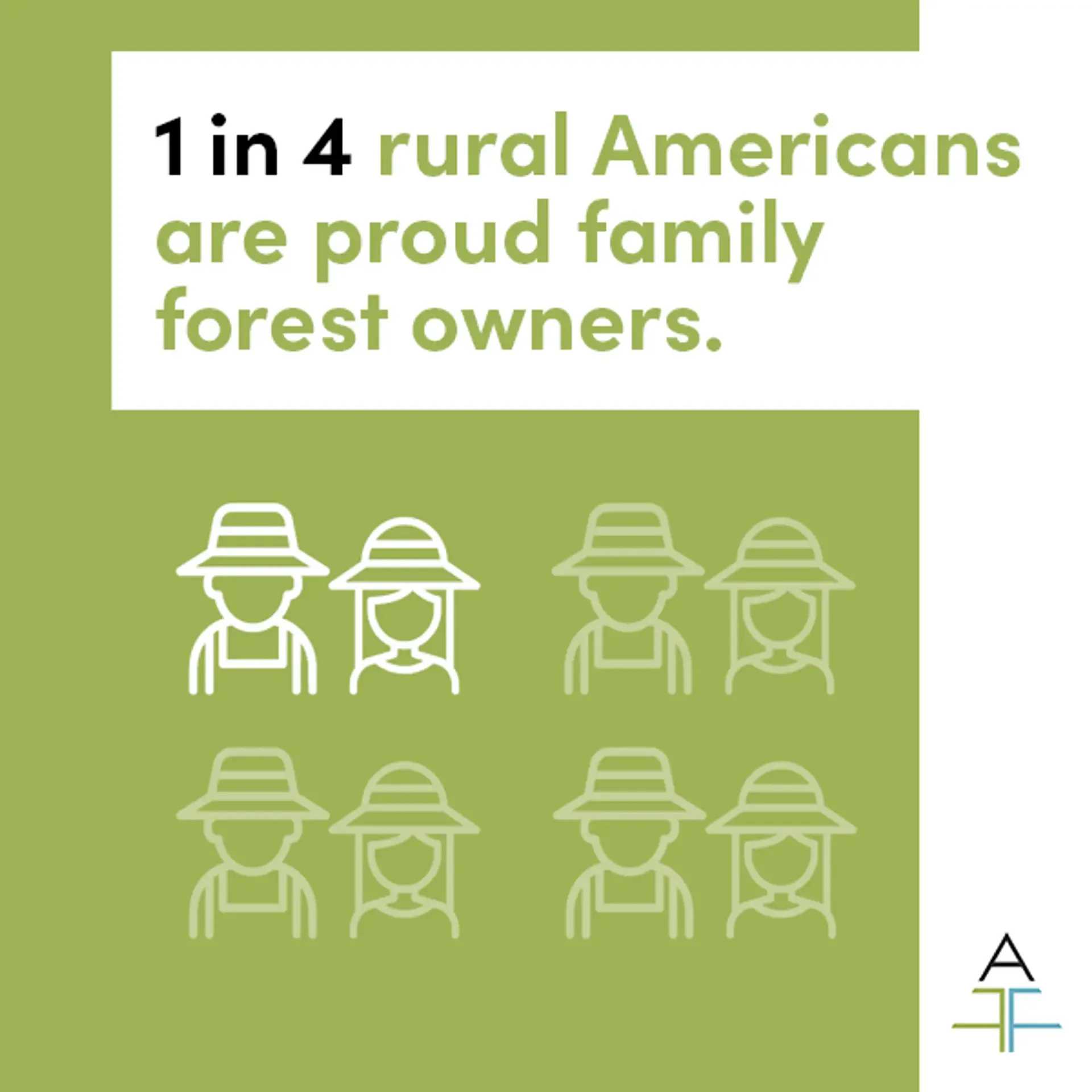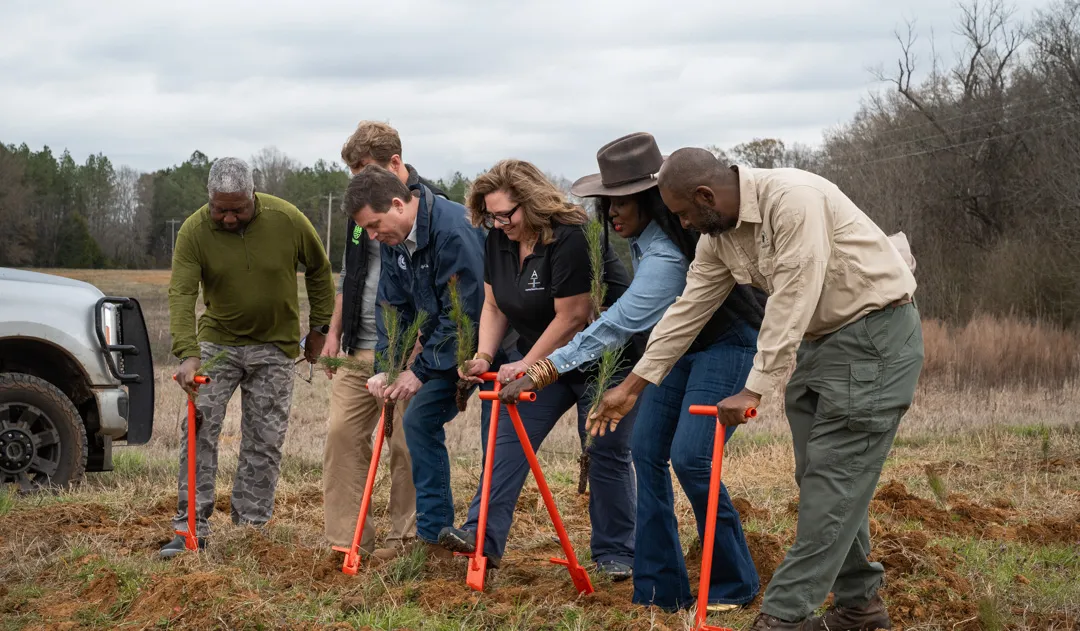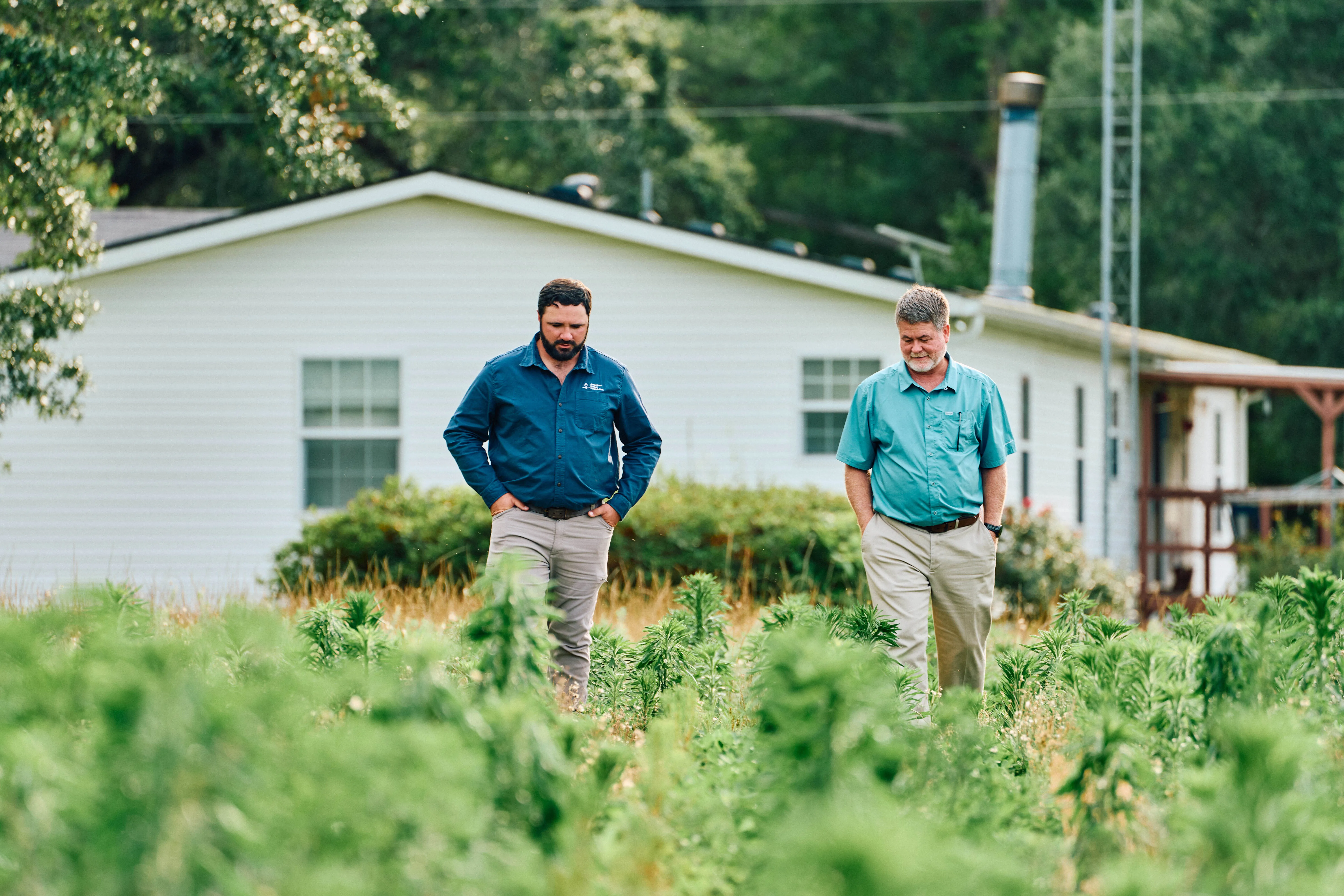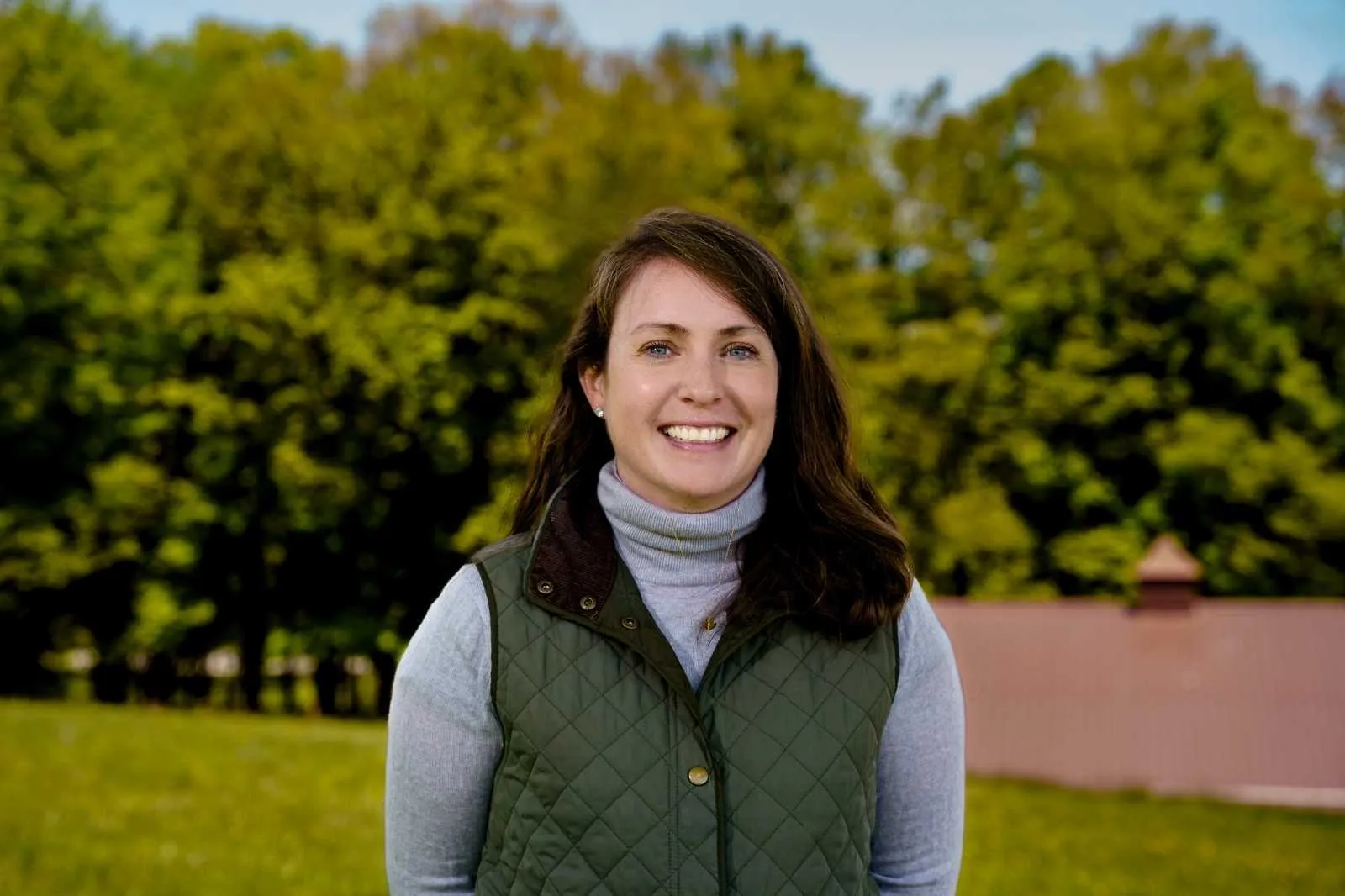Empowering Rural American Forest Owners to Take Climate Action
In the U.S., forests serve as the nation's largest terrestrial carbon sink, offsetting 15 percent of our nation’s annual emissions. More importantly, studies suggest this could be nearly doubled - through reforestation (planting trees) and improved forest management of our existing woodlands.
To unlock the carbon potential in our forests, lawmakers should look no further than family forest owners. Families and individuals, with properties varying from 20 to 2,000 acres, collectively care for the largest portion of forests in America. Some are generations of families, others are farmers who also own trees, others are wildlife enthusiasts, and some are simply people who own forestland as part of their home. While they may all be different, they all care for land that contributes to clean water, wildlife habitat, wood supplies, and our carbon sink.

To unlock the carbon potential in our forests, lawmakers should look no further than family forest owners. Families and individuals, with properties varying from 20 to 2,000 acres, collectively care for the largest portion of forests in America. Some are generations of families, others are farmers who also own trees, others are wildlife enthusiasts, and some are simply people who own forestland as part of their home. While they may all be different, they all care for land that contributes to clean water, wildlife habitat, wood supplies, and our carbon sink.
Yet their contributions often go unnoticed, unsupported and undervalued, especially as it relates to their contribution to our climate. Policymakers have an opportunity to change this.
According to AFF research, family forest owners want their land to remain as a forest into the future and want to improve its health today. Both of which are goals that align with increasing carbon sequestration and storage in forests. Similarly, a recent study from Duke University indicates that landowners as well as farmers, ranchers and other rural citizens want to be brought to the table as critical partners in climate action.
Yet, forest owners are running into roadblocks when it comes to improving the health and productivity of their forests, and its ability to sequester and store more carbon. Most notably:
Technical expertise – understanding the right practices that capture and store more carbon and improve forest health.
High costs – 1 out of 3 family forest owners have a household income of less than $50,000. This can make it virtually impossible to afford the necessary work to maintain the land, let alone improve it for carbon or other benefits.
Lack of access to markets – while carbon markets exist and are growing, less than 1% of small forest owners have been able to enroll in them. This is due to complexity, high upfront costs and extremely long contract lengths.
Its Time to Scale Up Climate Action in Family-Owned Forests by Leveraging Carbon Markets
Carbon markets offer one of the best opportunities to empower family forest owners to act on climate. While government-funded assistance, such as conservation programs or tax incentives, are important pieces of the equation and are absolutely needed, they alone cannot achieve large-scale action.
Carbon markets:
Leverage private investment that is already interested in forest carbon, rather than needing outlandish government funding.
Channel real dollars to small communities, stimulating economic growth across rural America.
Appeal to landowners because they provide an avenue for generating income from their land that they can put back into the trees.
Offer a voluntary option for forest owners for action rather than a regulatory approach.
How can the government play a role in voluntary markets without overstepping?
Congress can catalyze markets for small forest owners, empowering families to implement climate-smart forestry practices that result in real, verifiable carbon sequestration and storage.
Senators Stabenow (D-MI) and Braun (R-IN) in the Senate and Reps Pingree (D- ME) and Stefanik (R-NY) in the House have introduced the Rural Forests Markets Act - a bipartisan bill that would create carbon markets for small forest holders. It would do so by giving the USDA authority to issue loan or bond guarantees to investors to help de-risk their investment in new, innovative carbon projects for small forest owners- unlocking private capital and developing revenue streams for landowners.
Already credible private sector carbon programs are taking shape, such as the Family Forest Carbon Program, a program developed by the American Forest Foundation and the Nature Conservancy. The Rural Forest Markets Act would help to scale this program across the U.S.
Download AFF's one-pager on the Rural Forest Markets Act.
If you are a policymaker or staff and would like to learn more about family forest owner policy, contact us at info@forestfoundation.org.
Related Articles

February 12, 2026
Fields & Forests Plants its Millionth Tree
AFF celebrated the millionth planting on recently enrolled landowner Portia Fulford’s property near Montgomery, Alabama. AFF was joined by several key partners, including the Arbor Day Foundation, the Alabama Forestry Commission, the Alabama Forestry Association, Help for Landowners, and Funga.

February 11, 2026
Building Momentum & Impact: A Look Back at 2025
As we look back on 2025, one thing is clear: the Family Forest Carbon Program community continues to grow in both scale and impact. From enrolling new landowners to delivering verified carbon credits and expanding landowner support, this past year brought significant milestones for family-owned forests across the country.

February 3, 2026
Reflecting on 2025 and Looking Ahead
Happy New Year from the Family Forest Carbon Program team! It’s been a tumultuous year, to say the least, so I hope you’ve all been able to find some peace, prosperity and perspective enjoying your farms, fields, and forests with your families. As I reflect on our community, it’s clear we have so much to be grateful for.